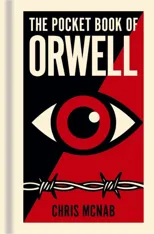Clearing the Way
U.S. Army Engineers in World War II
(Author) Chris McNabAn in-depth insight into the crucial role of U.S. Army engineers during World War II, based on original manuals and reports. Quite simply, without engineers the U.S. Army would have been unable to fight World War II. The men of the Corps of Engineers, with the strength of more than 700 battalions mobilized during World War II, were tasked with every imaginable engineering challenge. In rear areas and back in the United States they built the facilities essential for everyday military life--showers, toilets, barrack blocks, military hospitals, training camps, storage depots, and much more. To keep logistics flowing to the front, they constructed or repaired thousands of miles of roads and bridges, plus built airfields to support Allied strategic and tactical air operations. Engineers also created endless chains of defensive positions, from simple trench systems to complex bunker networks, as well as retrieving damaged vehicles and equipment from still-contested battlefields. Combat engineers, meanwhile, occupied some of the most dangerous frontline roles in the American armed forces. Heavily armed with demolitions and weapons, plus weighed down by engineering tools and even driving armored bulldozers, they were tasked with destroying enemy strongpoints, bridges, equipment, vehicles and many other obstacles to the advance, in both overland and amphibious operations. Clearing the Way: U.S. Army Engineers in World War II brings together an exceptional collection of primary sources from engineering field manuals, technical manuals, and other official publications. They provide a detailed insight into the work and skills of the U.S. Army engineers, including building a field fortification, laying and defusing mines, making a contested river crossing, or camouflaging a defensive position properly. Through these texts, we gain practical insight into the exceptional individuals who often combined first-rate infantry fighting skills with engineering skill and problem-solving ingenuity.
Chris McNab
Chris McNab is a British writer and historian known for his expertise in military history and weaponry. He has authored over 100 books on a wide range of topics, including the history of warfare, special forces, and military tactics. McNab's writing style is characterized by his thorough research, detailed analysis, and engaging storytelling.
One of his most notable works is "The Illustrated History of the Vietnam War," which provides a comprehensive overview of the conflict and its impact on the world. McNab's contributions to literature include shedding light on lesser-known aspects of military history and highlighting the experiences of soldiers on the frontlines.
McNab's impact on the literary genre of military history is significant, as he has brought attention to important events and individuals that have shaped the course of warfare. His ability to make complex historical topics accessible to a wide audience has earned him a reputation as a respected authority in the field of military history.






